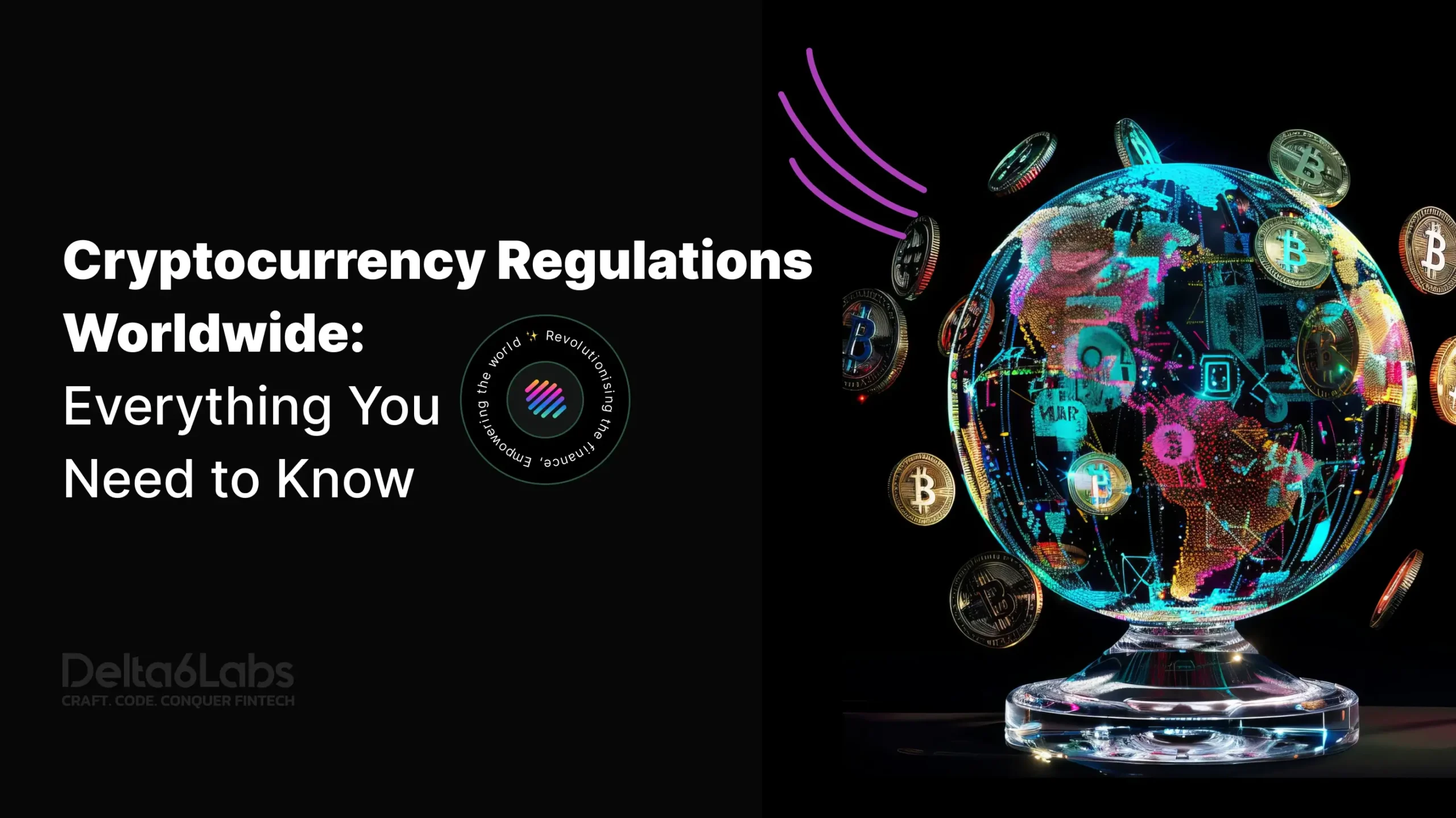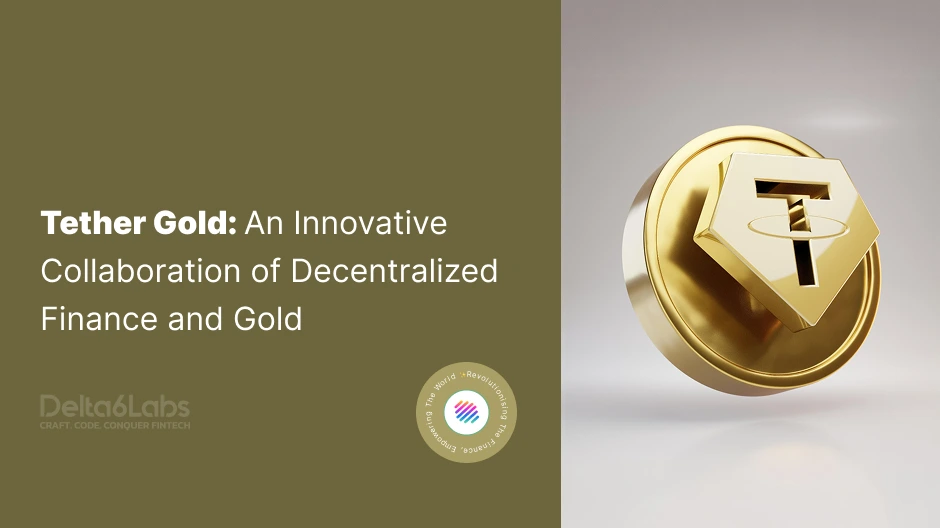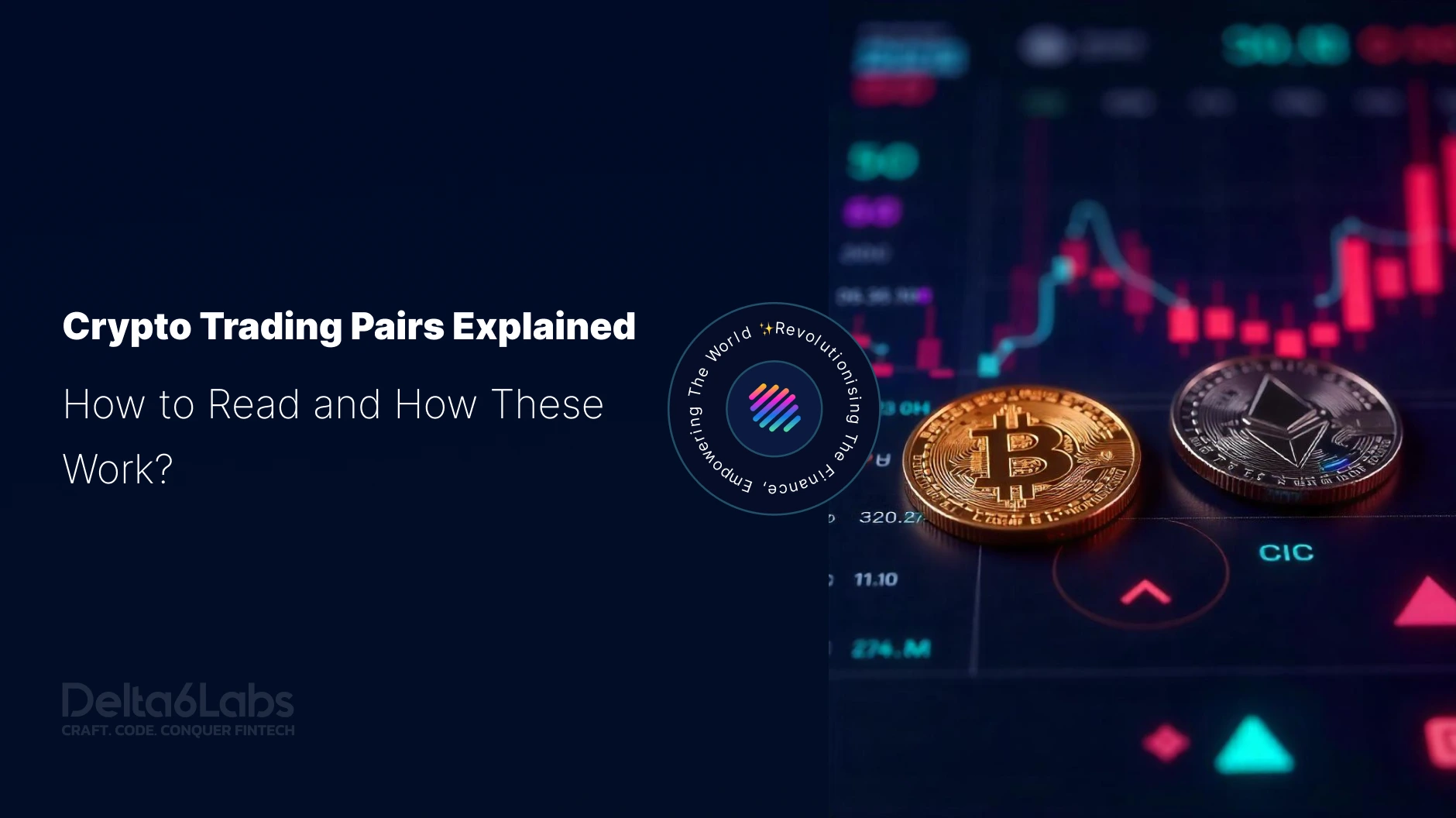Cryptocurrency Regulations Worldwide: Everything You Need to Know
Table of Contents
Cryptocurrency is a type of virtual or digital currency that is minted on the blockchain. It is a computer-based currency that operates through the Internet. It has emerged as an alternative method of paying and receiving bills and investments. These are decentralized, and cryptographic measures are used to create these cryptocurrencies that enhance their security. They do not rely on a central entity like banks and can operate independently.
Cryptocurrency has proven its worth in various sectors of the economy. From real estate to hospitals, from investment firms to government industries, everyone is accepting cryptocurrency as a method of payment for their services. Big companies like Tesla, Microsoft, PayPal, Starbucks, IKEA, and many more exchange transactions through cryptocurrencies. Because of cryptocurrency, the global economy is booming.
The current market cap of the cryptocurrency has already breached $3.6 trillion in January 2025 and is growing like a Tsunami wave. But with this huge revenue potential comes high volatility. The market for digital currency is dynamic and vulnerable. The main reason behind this is the lack of consumer protection rules against market risks and scams, and there is no global regulatory framework for cryptocurrency. Many countries like Bangladesh, China, Algeria, Morocco, Iraq, and Vietnam have banned the use of cryptocurrency, which puts a question mark on its pan-world availability and acceptance. In this article, we will learn about the crypto regulations of several countries from different continents and their impact on the global economy.
What is the need for cryptocurrency regulations?
People from different regions of the world are using cryptocurrency for various purposes. Many of them are scammed by virtual assets service providers in the name of profit and revenue generation. The total worth of scams unearthed in recent years is more than billions of dollars. People have invested their hard-earned fiat money in cryptocurrency to reap better revenue, but they were scammed by various companies. Since there is no regulatory framework or insurance coverage like a traditional banking system, people don’t get back their assets.
Onecoin is one of the most prominent crypto scams in the crypto landscape. Its total worth was more than 10 billion dollars, and it is still crowned the top crypto scam ever. Another such scam was the Thodex scam, which was unearthed in 2021. The company owner ran away with 100,000 investors’ money. Many scams like Thodex and Onecoin have happened over the years, but many are still unreported.
Due to scams, hacking, and phishing activities, there is a stringent need for a strong regulatory framework that can guide users and agencies in protecting consumers against potential risks and keeping their digital assets secure.
Cryptocurrency Regulation Across The Globe
Different countries have drafted crypto regulations according to their requirements, but most of them are still in the early stages. Responsible agencies are still processing the legal requirements for a crypto regulatory framework. In this section, we will learn about the crypto regulations of various countries.
Crypto Regulations in the USA
The USA has the highest cryptocurrency market size among all nations. If the continent-wise size is compared, then North America has almost half the global market size, and the USA has a 0.44 billion USD market cap as of 2024. As big as the market is, the risk is also bigger. The USA has the highest number of cryptocurrency investors, so it is necessary to have a stable and classified framework to protect these investors.
Three main agencies in the USA oversee all matters related to cryptocurrencies: the Financial Crimes Enforcement Network (FinCEN), the Commodity Futures Trading Commission (CFTC), and the United States Securities and Exchange Commission (SEC). The main regulations under which these agencies work are the United States Bank Secrecy Act (BSA) and the FinCEN Implementing Act.
As per these regulations, P2P exchanges, wallet service providers, DApps, etc, come under the regulating agencies. However, there is uncertainty among VASPs because of the conflict between federal and state regulations. Certain states like Wyoming have made themselves crypto-friendly, and states like New York have very strict license rules that have made the companies change their region of operation. The USA is the hotspot of blockchain innovation, and to protect such innovative ideas and people, a strict yet all-inclusive federal law is the need of the hour.
Crypto Regulations in Canada
Canada is one of the countries that started regulating cryptocurrency in the very early years. Canada, in 2014, established a law for cryptocurrency by amending the Proceeds of Crime and Terrorist Financing Act (PCA). However, as per the Canada Currency Act, cryptocurrencies are not considered legal tender because they are not minted by the Bank of Canada rather, they are considered commodities by the Canada Revenue Agency (CRA). In the federal budget 2024, the government of Canada has stated that a crypto-asset reporting framework will be ready by 2027. Currently, People can trade in Crypto and must report their gains or losses as per the taxation rule, but they are not regulated by a federal framework.
Crypto Regulations in Asia
Asia is the hub of developing countries in the world. From India to South Korea, Singapore to Japan, and Russia to China, every country is promising huge economic potential. India and China are the two biggest markets in the world because of their huge population, so they have the potential to become big contributors to the global market size. But the state of crypto regulations in these countries is also not so good. Let’s understand the crypto laws of these countries.
Russia
Russia is at the top of the list among the countries that are mining cryptocurrency. In 2024, Russia passed legislation that created a legal framework for the taxation of crypto-mining and the exchange of cryptocurrencies. Russia is taking great leaps in the direction towards bringing a stable regulatory framework for digital assets.
Crypto trading and mining are legalised in Russia. This 2024 law recognises digital currency as property in amendments to Russia’s Tax Code. As per the new regulations, crypto trading will be subjected to a 13-15 % tax, and corporate organisations will be taxed at 25%. As a result of its new tax policy, Russia is going to collect 200 billion Rubles in a year from the crypto miners.
India
India has also taken some steps towards drafting a regulatory framework for cryptocurrencies, but it is not legal tender, nor is it defined as commodities or property under any Indian law. However, crypto trading is taxed at 30% with 1% TDS under the Indian taxation system excluding international and P2P trades.
Financial Intelligence Unit (FIU)- India is the apex body that determines the regulations related to AML and CFT in India under the Prevention of Money Laundering Act (PMLA), 2002. FIU-India is dealing strictly with the VASPs that are not registered as per the AML regulations of the FIU. FIU banned Binance and Kuecoin for the same reason but later lifted the ban after these service providers paid the fine and completed the registration process. Recently, Bybit has also restricted Indian users from its platforms as it was not registered with FIU-India.
India is a big market and has a chance to become a hotspot for crypto trading and mining, but in the absence of a regulatory framework, investors and companies do not want to take risks. We may see some developments related to VDA policy in the union budget 2025.
China
China has the harshest crypto regulations all around the world. China has banned the use of cryptocurrency as a medium of exchange. However, people can own crypto for their personal use. Even with a strict crypto ban, China still has a 55% share in global Bitcoin mining because of its advanced technology. China was once considered a haven for crypto miners, but now crypto investors are opposing this harsh stand of the People’s Republic of China.
However, China is taking giant leaps in blockchain technology through its digital currency (e-CNY). Investors are still hopeful that the government of China will relax the ban in the near future as it has praised Hong Kong’s rise as a new crypto haven.
Hong Kong
Hong Kong is transforming itself into a go-to destination for investors and traders in the Asia-Pacific region because of its stable and compiled crypto regulatory framework. In December 2024, the government of Hong Kong introduced the Stablecoin bill, which will implement a regulatory framework for the issuance of Stablecoin. The Hong Kong Monetary Authority (HKMA), which is the apex body related to crypto regulation, has clearly stated the issuers of a stablecoin should implement all the measures prescribed by the HKMA and must obtain a license for the same. Because of its innovative and strong regulatory framework, Hong Kong is projected to generate a revenue of $ 68.8 million in 2025.
Japan
There is no fixed regulatory framework for crypto assets in Japan. They come under different rules according to their uses and functions. Every CAES (Crypto Assets Exchange service) should register itself with the Financial Service Agency (FSA). If any CAES fail to comply with the regulations of FSA under the FIEA, then it will be subjected to punishment under criminal laws. In layman’s terms, cryptocurrencies are legal in Japan. However, they are not defined as money or securities but are subject to be defined as they function. For example, Bitcoin is a legal tender in Japan. The Japan Virtual Currency Exchange Association (JVCEA) and Japan Security Token Offering Association (JSTOA) are two other important agencies that oversee matters related to crypto and frame policies.
South Korea
Institutional crypto trading is banned in South Korea, but the government is preparing to lift the ban as per the recommendations of the digital assets committee. The Financial Services Commission (FSC) is the supervisory body that oversees all the developments related to the crypto regulatory framework.
Enforcement Decree of the Act on the Reporting and Use of Specific Financial Transaction Information is among the regulations under which VASPs need to register with the FSC.
Singapore
The regulatory framework of Singapore is defined under the Payments Services Act, 2019 (PSA). The main body that regulates matters related to crypto assets in Singapore is The Monetary Authority of Singapore (TMAS). MAS implements strict Anti-Money Laundering (AML) and Counter-Terrorist Financing (CFT) regulations to protect its citizens. The Securities and Futures Commission (SFC) also plays an important role in the regulatory framework and its implementation.
Crypto Regulations in the European Union (EU)
France
France has one of the most stringent and stable legal frameworks for cryptocurrencies. France facilitates a secure environment to buy, sell or exchange cryptocurrencies. The buying, selling and holding of cryptocurrencies is legalized in France. The Autorité des Marchés Financiers (AMF) is the apex body that oversees all the regulatory matters related to cryptocurrencies. FATF’s Travel rule is also applicable to the VASPs in France to protect users against money laundering activities.
Netherlands
Like France, the Netherlands also has a positive crypto policy. All the EU nations are governed by Markets in Crypto-Assets Regulations (MiCA) for their crypto policies. This stringent legal framework will ensure market integrity and financial stability by regulating public offers of crypto assets. The VASPs must register themselves with the Dutch Central Bank (DSB), which decides the regulations under the Dutch Money Laundering and Anti-Terrorist Financing Act (Wwft). All the other crypto assets that are defined as securities or electronic money come under the ruling of the Dutch Financial Supervisory Act (FSA).
Switzerland
Switzerland was among the first countries to enact a regulatory framework for Cryptocurrencies. There is no apex body for the regulation of crypto in Switzerland, as it is considered a financial instrument that makes it fall under the jurisdiction of the Swiss Financial Market Supervisory Authority (FINMA). Cryptocurrency in Switzerland is considered a foreign currency and is subjected to wealth tax. However, crypto is not considered a legal tender in Switzerland. For AML compliance, FATF’s travel rule applies to the virtual assets service providers (VASPs) in Switzerland.
Germany
Germany has the most crypto-friendly laws in the whole world. Users can dispose of their cryptocurrency after a year of holding it without paying any tax. Before a year, it will be subjected to 0-45% tax. Cryptocurrencies are considered legal tender in Germany.
Crypto Regulations in the United Kingdom
The United Kingdom has enacted a stable and stringent regulatory framework for cryptocurrencies. The Financial Conduct Authority is the apex body that oversees all the matters related to cryptocurrencies and AML compliance. FATF’s travel rule is applicable in the United Kingdom. As per the 2024 tax policy, anyone transferring or receiving cryptocurrency worth more than $10000, needs to inform the IRS.
Crypto Regulations in Africa
Kenya
Among African nations, Kenya is one of the most promising in cryptocurrency regulations Kenya also has a big user base, as per crypto ownership data, more than 6 million people in Kenya own cryptocurrency. The Central Bank of Kenya and the Capital Markets Authority are the two main bodies that frame policies and frameworks for all financial matters in the country. Although the agencies are still strict about regulations and the use of crypto, they are showing some intent to bring changes.
South Africa
Cryptocurrencies are considered financial instruments as per the declaration of the Financial Sector Conduct Authority (FSCA) under the Financial Advisory and Intermediaries Services Act 2002 (FAIS). FINSURV and FIC are two departments with whom the crypto assets service providers need to register themselves. Because of the positive approach of the government and agencies, crypto platforms are blooming in South Africa. Delta6labs has also developed a centralized crypto exchange for South Africa.
Crypto Regulations in Australia
Australian Commonwealth government is showing a positive attitude towards regulating cryptocurrency and promoting innovation in blockchain technology. The Australian Securities and Investments Commission (ASIC) is the primary body that frames policies and regulations related to cryptocurrency. All the VASPs need to obtain an AFSL (Australian Financial Services License) to provide services in Australia and need to comply with the AML guidelines. All the service providers also need to register themselves with the Australian Transactions Report and Analysis Centre (AUSTRAC).
Crypto Regulations in Brazil
Brazil is taking slow but steady steps towards the development of crypto regulations. The Brazil Central Bank has taken initiatives in that direction by establishing The Financial and Technological Innovations Laboratory (Laboratório de Inovações Financeiras Tecnológicas – “LIFT”) in cooperation with the National Federation of Associations of the Central Bank Employees (Federação Nacional de Associações dos Servidores do Banco Central). The crypto regulatory framework is built upon the legal foundation established by Law No. 14.478/2022 and Decree No. 11.563/2023. Brazilian agencies are taking a phase-wise approach towards the framework development.
The Opinions of World Agencies
Almost every country in the world is taking some steps for cryptocurrencies, whether it is positive or negative. Governments of various countries are working together to share knowledge and technology to build infrastructure related to digital assets. Some world agencies are also working with different governments, experts and companies to bring a pan-world regulation for crypto assets. In this section, we will learn about the opinions of various agencies about crypto.
The World Bank has clearly stated that Crypto assets have still not met the basic requirements for reserve assets. “Even having substantial trading volume, the liquidity in cryptocurrencies is not as high as traditional assets”, quoted the World Bank in its blog. Due to the cross-border operability of cryptocurrencies, there are security concerns related to terror funding and money laundering.
The World Economic Forum has taken a positive approach towards crypto regulations and quoted in World Economic Forum’s Pathways to the Regulation of Crypto-Assets: A Global Approach that international alignment on certain cryptocurrency rules is “not just desirable but necessary”.
Taking a global approach, the International Organization of Securities Commissions (IOSCO) published its 18 policy recommendations for crypto and digital asset markets in November 2023. This has been seen as a big step towards a global crypto regulatory framework.
One of the most promising and detailed regulations related to the AML and CFT guidelines in the global arena came from the Financial Action Task Force (FATF). The FATF has framed travel rules for the VASPs all around the world. This travel rule is also known as FATF Recommendation 16. This document has guidelines for all countries to protect their citizens from money laundering activities and terror financing.
Conclusion
The global crypto market is booming and is growing every day, even with its challenges and regulatory issues. But in the longer run, crypto regulations on a global scale are the need of the hour. In future, the market will only grow when we have stringent and stable global laws for cryptocurrencies because the crypto market is highly vulnerable, and because cryptocurrencies can be operated across borders, the security risks are very high. Global agencies are fostering blockchain innovations but are also trying to draft a framework that can provide a secure environment for crypto miners and traders.
On a separate note, environment protection and climate change mitigation agencies are also pushing for strict laws for crypto miners across the globe because the minting of crypto is a highly energy-consuming activity. Global agencies are also pushing countries to follow SDG goals while framing rules for cryptocurrencies.
The biggest takeaway from last year is that the countries are proactive and working to develop regulatory frameworks to protect their citizens against any risk and threat related to crypto assets. Agencies like FATF are working towards achieving the exchange of crypto without the fear of terror financing and money laundering through their AML and CFT guidelines.
Countries like Germany, Switzerland and Hong Kong are proactive in determining the crypto rules, whereas countries like Brazil, India, Australia and the USA are taking slow but steady steps. In contrast to these, China has outright banned crypto trading in every part of the country. Even after the ban, China remains a hub of crypto miners in the world. This means crypto is here to stay and bloom and we must take a positive approach towards framing crypto regulations for smooth and secure exchanges of cryptocurrencies.
Frequently Asked Questions
Disclaimer:
The information on this blog is for knowledge purposes only. The content provided is subject to updates, completion, verification, and amendments, which may result in significant changes.
Nothing in this blog is intended to serve as legal, tax, securities, or investment advice of any investment or a solicitation for any product or service.






